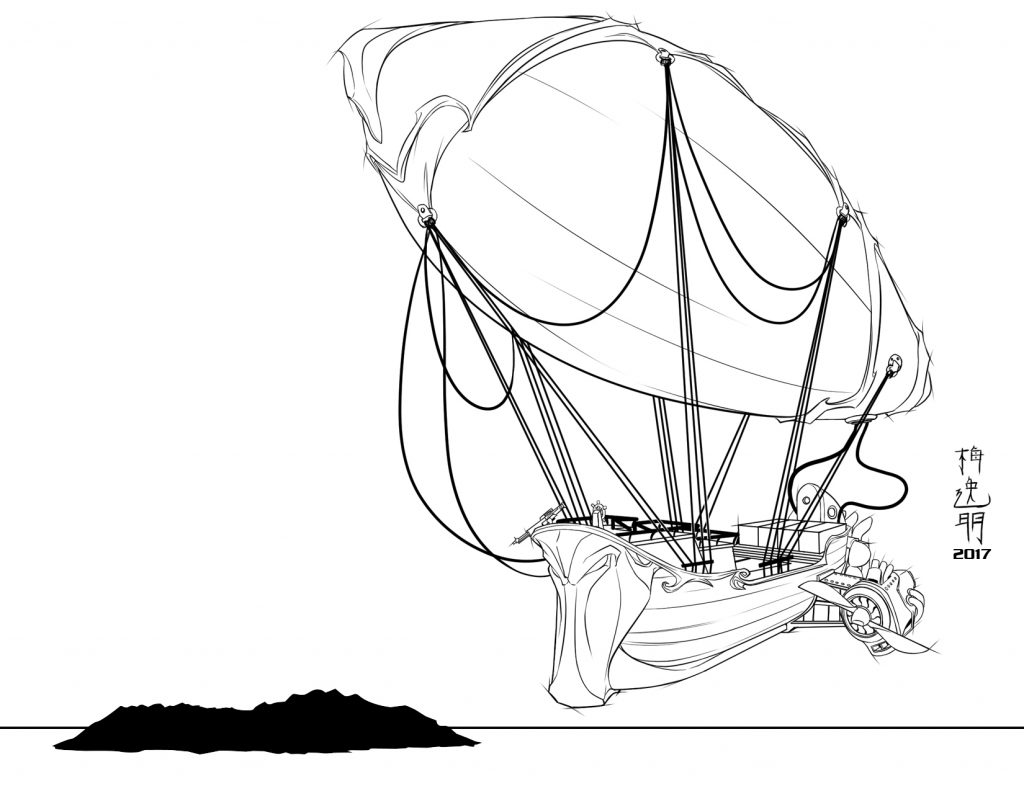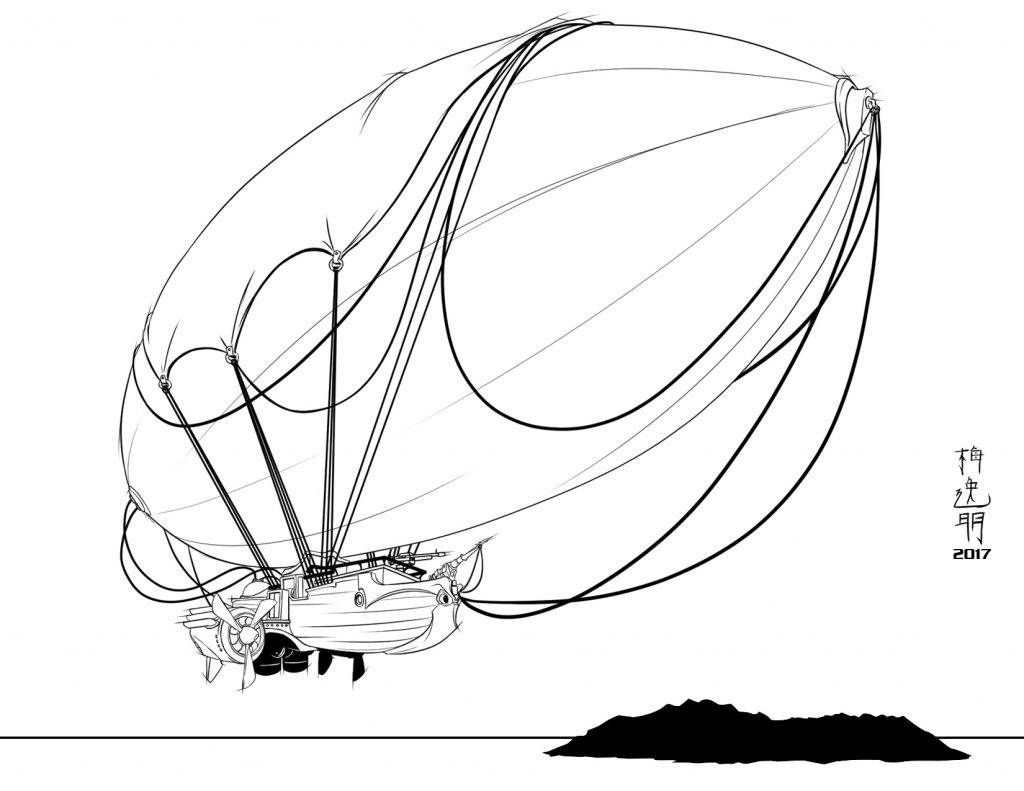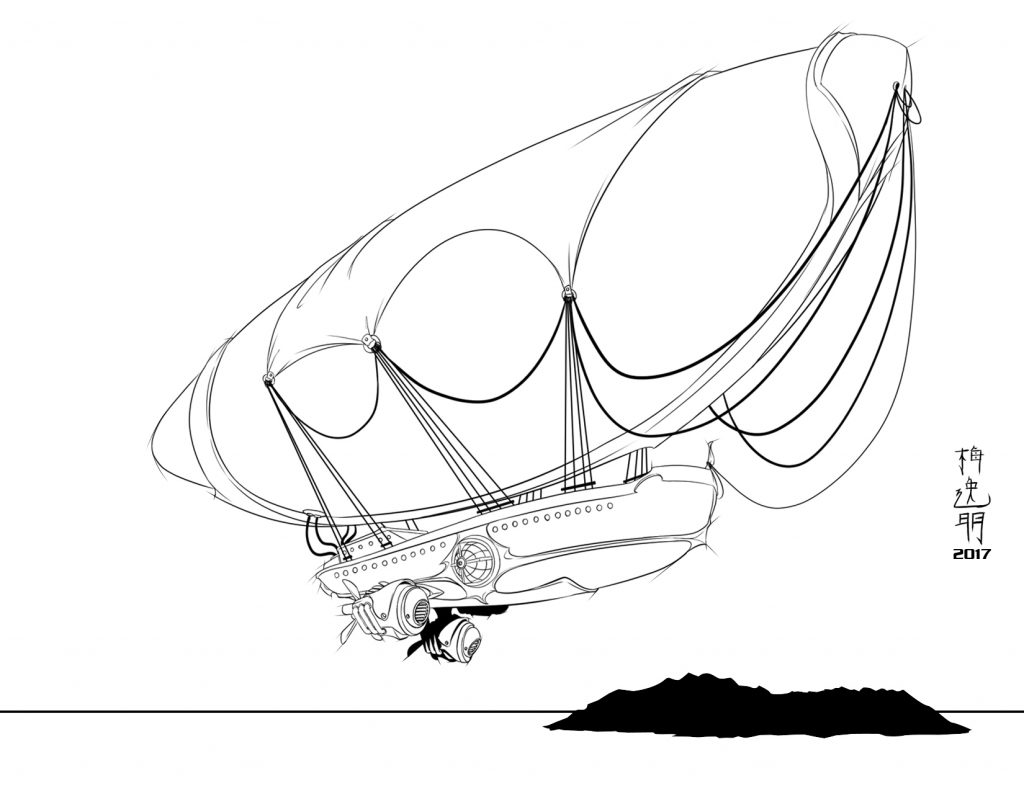1879: Air Travel
The addition of commercial passenger service to a game world creates a whole new level of expanding complications. Earthdawn has riverboats and airships, but they’re either independently owned or part of a trading house, with cargo being the primary goal. There’s rules and commentary for purchasing or bartering for passage on a V’strimon riverboat, or a House Garsun airship, but those are handled on a one-off basis. In 1879, there’s companies that make the majority of their profit by transporting people, with mail and cargo a distant secondary consideration.

This means rates are set. There’s ticket agents, and schedules. There’s passenger terminals, and steamships that have varying levels of accommodation according to social class and how much one is willing to pay for a ticket. The ship has stewards, and cooks, a purser, a concierge, all the staff one would expect in a hotel, in addition to the crew that sails the vessel. Travel time is more or less fixed, and the possibility of random events is minimized by armed patrols in the shipping lanes and weather forecasting.
Giffards add yet another level of complication. Steamers must make dock at the coastline, where entry to a country can be reasonably controlled. Customs agents stand by to inspect papers and luggage, and collect the requisite taxes. Giffards can dock anywhere they can tether, utterly ignoring national boundaries if they can slip past the defenses at the border. They’re much more concerned with weight, to the point where there’s a private room at air terminals for passengers and their luggage to be weighed in like prize fighters preparatory to boarding, and ancillary fees for being over the expected poundage. Airships in 1879 don’t have the comfort crew that a steamship carries – each additional crewman on board is one less passenger that can be carried, so there’s one cook and a single steward, and only first class passengers get their meals brought to them freshly made, everyone else lining up for a tray they carry themselves, consisting at least half of preserved foodstuffs that may or may not have been properly reheated. Accommodations are likewise going to be a bit tight, with first class passengers getting a private room the size of a closet, and everyone below first class having only the choice of upper or lower berth, choosing their bunkmate only if traveling with someone they know.

Handling all of this in-game means figuring out a lot of details, and then figuring out what of those details can be shoehorned into the page count of the book. Where is the primary aerodrome in London? How much page space can be allocated to describing it? Do we have room for an illustration? What are the rules for landing where there isn’t a proper facility? There’s going to be smuggling by air, after all, and dropping off passengers in the middle of the night, or the middle of nowhere. How savvy does the passenger need to be in regard to the constraints and dangers of air travel? What is the safety lecture like? Steamships have lifeboat drills, sometimes, although half of them don’t have enough lifeboats to handle the passenger count. Are there parachutes aboard the Giffard? Are there enough for the crew and the passengers? How do you train someone who’s never flown before to make a safe parachute drop? Is it even possible?
We’ve addressed a bit of this in the London sourcebook, with a description (and an illo) of the King’s Cross aerodrome. What air travel is like for the passenger, though, remains undescribed, for a future book. The fact that the cabins always smell of paper and old canvas, for example, because if there’s no passenger for the cabin, the Giffard takes on bags of mail equal to the weight of the missing passenger, to make sure the flight is as profitable as possible. The safety lines on deck are dyed bright orange, so that they can be readily seen, and passengers may or may not even be allowed on deck during flight.

And then there’s air pirates, and defending a Giffard with a gasbag filled with hydrogen and a vat of hydrochloric acid sitting right under it from someone dropping Molotovs from above. And that’s just on Earth. Move to the Gruv, and there’s pteranodons, and Saurid sky riders, and the Samsut with antigravity sky chariots. The forthcoming 1879 GM’s Companion will have the vehicular combat rules, so a place has at least been found for that aspect.
Dangerous situations create adventures. Just getting from Bristol to Calais aboard a routine passenger flight could be adventurous in the explosive-flaming-death sense. Taking a scout vessel out from Fort Alice into the Gladstone Mountains, where there’s hostile Saurid tribes, and grenadier birds, and uncharted weather patterns? You’d be mad to try it – or a player character.
